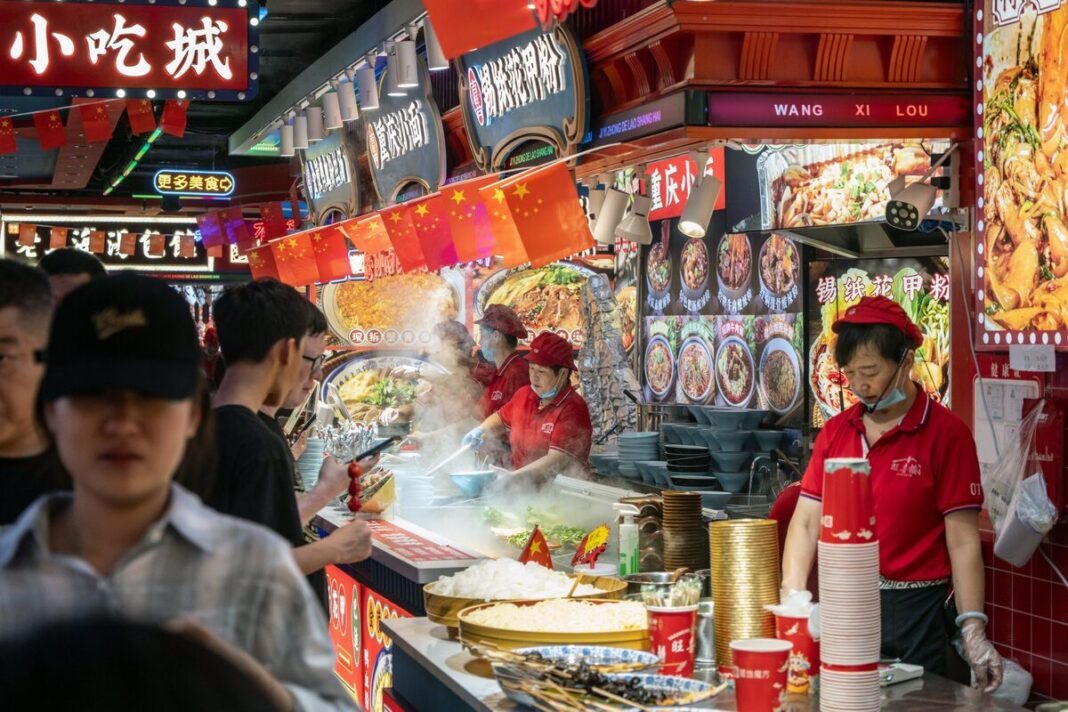China’s Unexpected Surge in Consumer Prices: An In-Depth Look
In October, China witnessed an unexpected rise in consumer prices—a phenomenon that has attracted significant attention from economists and analysts alike. This increase, attributed largely to heightened demand during the holidays, highlights the complexities of the country’s economic landscape.
The Context of the Price Increase
Consumer prices in China have long been a focal point in economic discussions. In a nation where inflation can have wide-ranging impacts on both the local and global economy, any fluctuations can set off a domino effect. October’s sudden uptick in prices came as a surprise, particularly as many expected a more stable or even declining trend due to previous economic indicators. Instead, it painted a vivid picture of a market rebounding from the uncertainties of the past years.
Holiday Impact on Spending
The holidays in October, including the Mid-Autumn Festival and National Day, traditionally see a surge in consumer spending. As families come together to celebrate, their demand for travel, food, and transportation spikes significantly. This seasonal rush can often lead to temporary increases in prices, especially in sectors directly linked to holiday festivities. The evidence of this was clear: restaurants were bustling, travel bookings soared, and transportation services experienced heightened demand.
Food and Transportation: Leading the Charge
Among the various segments contributing to the price surge, food and transport stood out prominently. As families dined out and traveled, prices for essential goods like fruits, seafood, and restaurant meals saw noticeable hikes. Transport costs, too, rose as a consequence of increased demand for inter-city travel, particularly via rail and air. This interlinked relationship between consumer demand and pricing underscores how cultural practices and economic activities are tightly woven together in China.
Economic Recovery or Worry?
While the rising consumer prices can be viewed as a sign of an economy on the mend, they also raise valid concerns. Inflation, if unbridled, can erode purchasing power and harm overall economic stability. For everyday consumers, especially in a country that has seen its share of economic volatility, the implications of rising prices can be deeply felt. For many households, budget adjustments may become necessary, putting pressure on discretionary spending.
Government Response and Policy Implications
In light of this unexpected inflationary trend, policymakers are likely to scrutinize the situation closely. The Chinese government has been proactive in managing inflation in the past, often employing measures such as adjusting interest rates or implementing price controls on essential goods. Moving forward, the authorities will need to strike a delicate balance—sustaining economic growth while ensuring that inflation does not spiral out of control.
The Global Perspective
Finally, it’s crucial to understand how these developments in China’s consumer pricing might resonate globally. As the world becomes more interconnected, shifts in one nation’s economy can ripple through international markets. China’s role as a major player in global trade means that its consumer spending habits thus bear significant weight. Investors, businesses, and policymakers around the world will be watching closely to see how this situation unfolds.
Final Thoughts
The unexpected rise in China’s consumer prices in October serves as a reminder of the intricate relationship between culture, consumer behavior, and economic indicators. With holidays prompting higher demand in critical sectors, the implications of this shift are felt on both a national and international scale. As stakeholders monitor these developments, the coming months will be crucial in understanding the ongoing trajectory of China’s economy.



